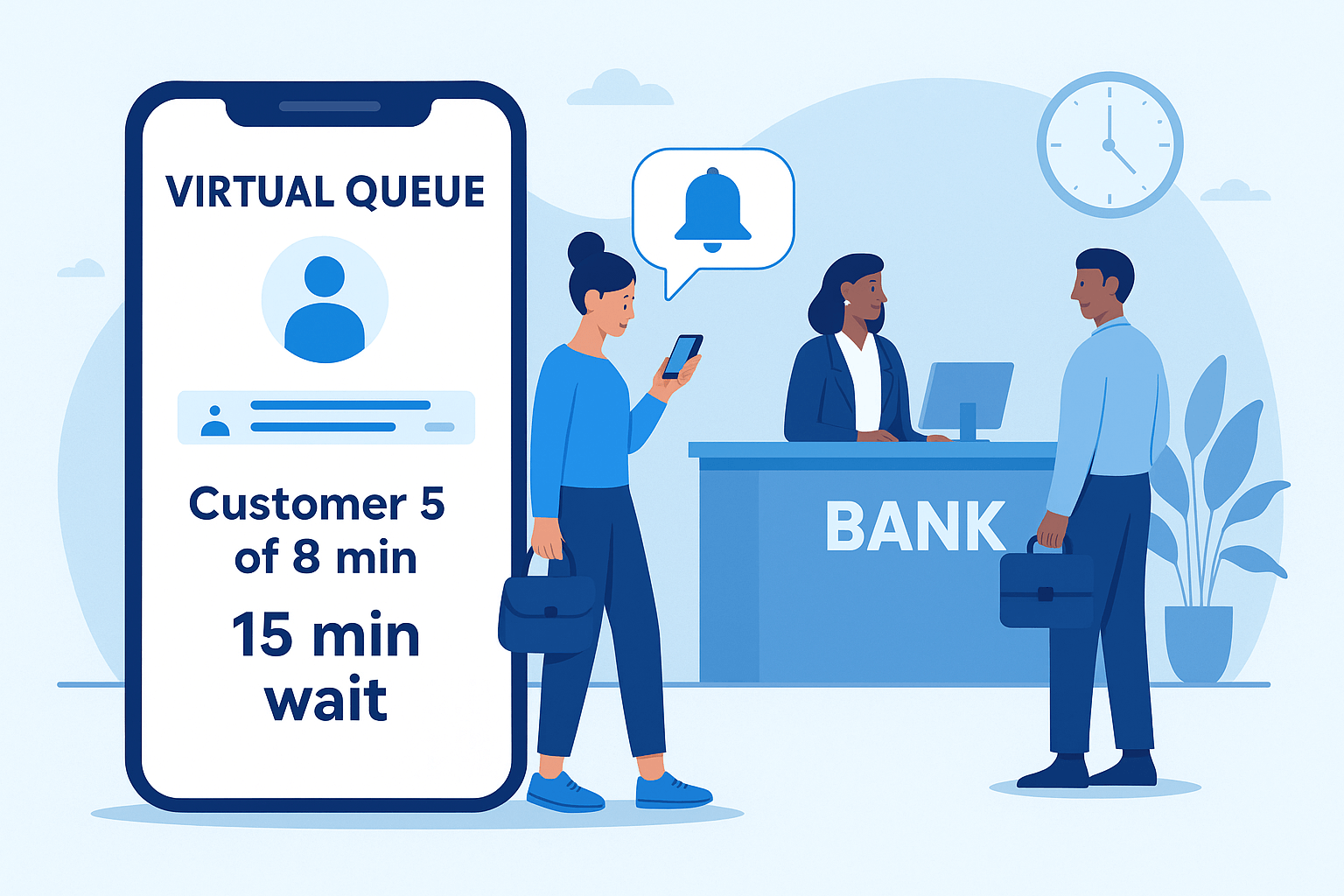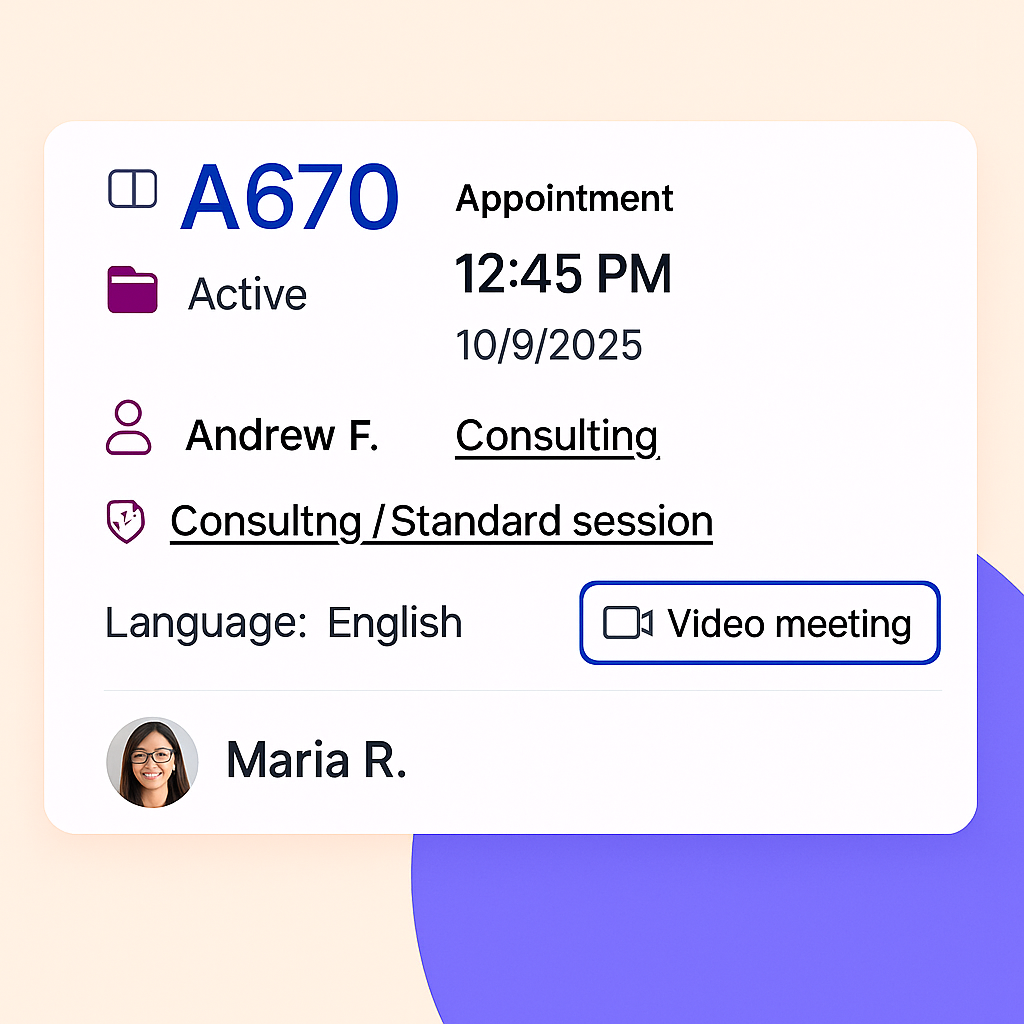In the digital age, universities must redefine student accessibility. By leveraging advanced technologies like virtual queuing and appointment software, institutions can significantly enhance the student experience. This blog explores the challenges of traditional methods and how modern solutions like Q-Flow can address them.
Traditional Challenges in Student Support
Universities have long relied on conventional methods for managing administrative tasks, often resulting in long queues and inefficient processes. Students are frequently caught between attending classes and handling administrative responsibilities, leading to significant frustration and lost academic time. These outdated methods not only disrupt students’ schedules but also create an environment of stress and inefficiency.
The Power of Virtual Queuing and Online Booking System Software
Virtual queuing and appointment scheduling software offer a transformative solution to these challenges. An online booking system provides a convenient and efficient way for clients to schedule appointments and book services 24/7. By allowing students to join queues and book appointments remotely, these systems streamline the booking process, eliminating the need for physical presence and waiting in long lines. Students can manage their administrative needs from anywhere using their smartphones or computers, making the process efficient and convenient.
Benefits of Virtual Queuing and Recurring Appointments Scheduling
Efficiency and Convenience: Virtual queuing systems streamline the process of accessing administrative services. Students can join queues remotely and receive real-time updates on their position in the queue. Appointment scheduling software allows them to book specific times for their needs, reducing wait times and ensuring they receive timely assistance. Additionally, booking confirmations can be customized and automated, integrating with other business apps to provide a seamless experience for students.
Reliability and Accessibility: These systems are designed to be reliable and accessible. They provide students with prompt attention and support, ensuring they can access the help they need without the stress of prolonged waits. This reliability is crucial in maintaining a balance between academic and administrative responsibilities.
Enhanced Student Experience: By minimizing disruptions to class attendance and reducing stress, virtual queuing and appointment scheduling systems create a more supportive educational environment. Students can focus on their studies and personal development, confident that they can handle administrative matters efficiently. The option to schedule recurring appointments ensures that students can manage their regular administrative needs without repeated booking efforts.
Implementing Queue Management Systems
The implementation of virtual queuing and appointment scheduling software in educational institutions not only improves accessibility but also enhances overall student support services. According to a report by RSI Concepts, virtual queuing systems allow students to wait remotely and receive notifications when their turn is approaching, significantly enhancing the overall student experience (RSI Concepts, 2024).
Queue management systems are integral to modernizing student support services. These systems offer a structured approach to managing student interactions with administrative offices. By setting up scheduling rules, institutions can customize booking pages and team availability, enhancing the flexibility and speed of managing appointments and classes. Features like real-time updates, notifications, and efficient queue management ensure that students receive timely assistance and can plan their schedules effectively.
Case Study: Bergen Community College
Bergen Community College implemented Q-Flow’s virtual queuing and appointment scheduling software to address long wait times and improve student satisfaction. The software is particularly beneficial for institutions with multiple locations, as it allows centralized management and resource tracking across different sites. The college saw a significant reduction in wait times and an improvement in the overall student experience. Students could manage their administrative needs remotely, allowing them to focus more on their academic pursuits. Administrative staff also benefited from reduced workloads and more efficient management of student interactions.
The Future of Student Support
As technology continues to evolve, so too will the methods universities use to support their students. Offering virtual appointments for online consultations and meetings will become increasingly common. Virtual queuing, appointment scheduling software, and comprehensive queue management systems are just the beginning. These tools not only simplify administrative processes but also empower students to thrive academically while receiving essential support services.
Conclusion
By prioritizing reliability, accessibility, and efficiency, virtual queuing and appointment scheduling systems revolutionize student support services. They bridge the gap between academic responsibilities and administrative needs, creating a more efficient and student-centered approach to higher education. As universities continue to embrace digital innovations, these systems will play a crucial role in enhancing the educational experience.
References:
- RSI Concepts. (2024). Virtual Queuing Systems: Redefining Waiting Experience. Retrieved from https://www.rsiconcepts.com/blog/virtual-queuing-systems-redefining-waiting-experience/





.webp)



.png)

.png)
.jpg)


.svg)

